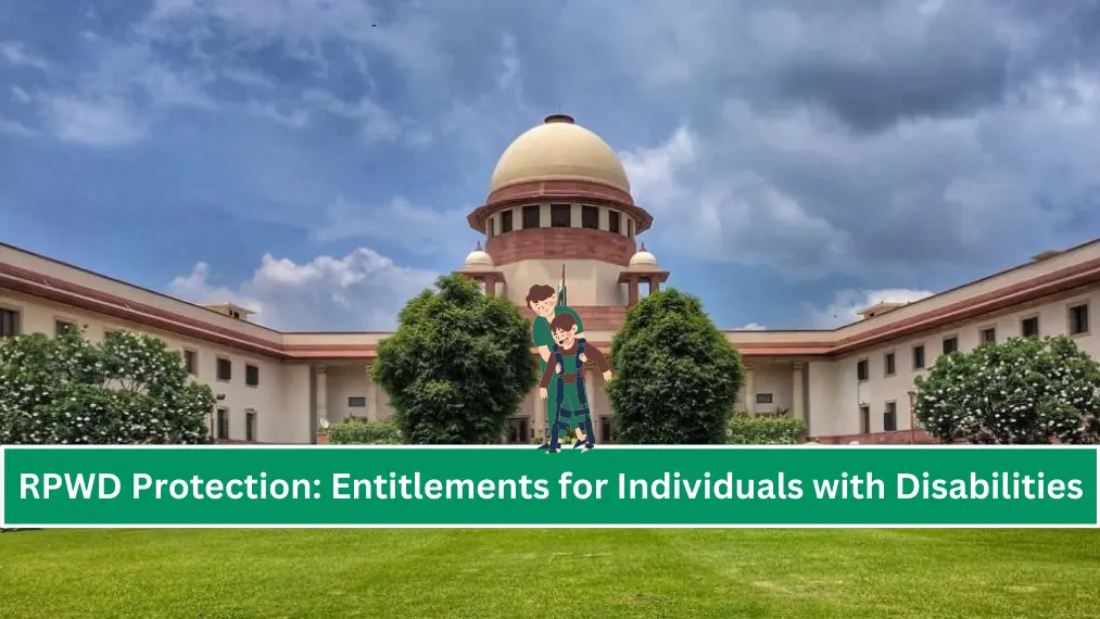Introduction: In Ravinder Kumar Dhariwal & Anr v. Union of India (Civil Appeal No.6924 of 2021), the Supreme Court observed that the initiation of disciplinary proceedings against persons with mental disabilities is a facet of indirect discrimination. The Apex Court was adjudicating upon a case wherein disciplinary proceedings had been initiated against an officer of the Central Reserve Police Force who had been diagnosed with 40 to 70 percent mental disability.
Facts: The Supreme Court addressed the initiation of disciplinary proceedings against a Central Reserve Police Force officer diagnosed with 40 to 70 percent mental disability. The case stemmed from a Gauhati High Court Division Bench decision, which allowed an appeal against disciplinary actions initiated despite the appellant’s mental disability. The officer faced charges including absence, use of unparliamentary language, media appearances without department approval, failure to give parade reports, intentional accident attempts, and assaulting a Deputy Commandant. The appellant, diagnosed with obsessive-compulsive disorder and major depression, was declared permanently disabled by Dr Ram Manohar Lohia Hospital. The Composite Hospital deemed him unfit for duty, placing him under the S5(P) category. The Supreme Court set aside the disciplinary proceedings, emphasizing the impact of mental disability and the need to protect the officer’s rights.
Contention of the Appellant: The Appellant argued that disciplinary proceedings were initiated against the officer despite his mental disability, raising concerns about discrimination based on disability.
Contention of the Respondent: The Respondent, in this case, likely argued that the disciplinary proceedings were justified, possibly citing specific instances of misconduct by the officer.
Court’s Observation: The Supreme Court observed that initiating disciplinary proceedings against individuals with mental disabilities constitutes a form of indirect discrimination. The court emphasized the importance of considering disability as a contributing factor to misconduct, even if it is not the sole cause.
The Court stated that the RPwD Act protects individuals with disabilities from discrimination, considering the disability as a contributing factor in any discriminatory act. Mental disability need not be the sole cause of misconduct leading to disciplinary proceedings. Persons with mental disabilities may face challenges in meeting workplace standards, leading to a disproportionate disadvantage and increased likelihood of disciplinary actions. Section 47 of the RPwD Act is not the sole basis for the right to equality; the entire statute is guided by the principle of non-discrimination. International law principles supporting equality for disabled persons must be considered. The Appellant, if reassigned, is entitled to protection of pay and conditions, with restrictions on assignments involving firearms or dangerous equipment. The first inquiry’s disciplinary proceedings are set aside, and the Appellant is also protected under Section 20(4) of the RPwD Act if found unsuitable for current employment.
Court’s Decision: The court, while setting aside the disciplinary proceedings, held that persons with disabilities are entitled to protection under the Rights of Persons with Disabilities Act, 2016 (RPwD Act). Additionally, it clarified that Section 47 of the RPwD Act is not the sole source of the right to equality and non-discrimination for persons with disabilities. The court directed the re-assignment of the appellant to an alternate post if necessary, ensuring the protection of pay, emoluments, and conditions of service.
 Cart is empty
Cart is empty 

